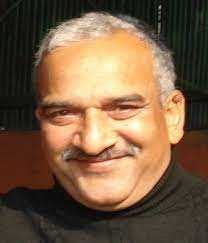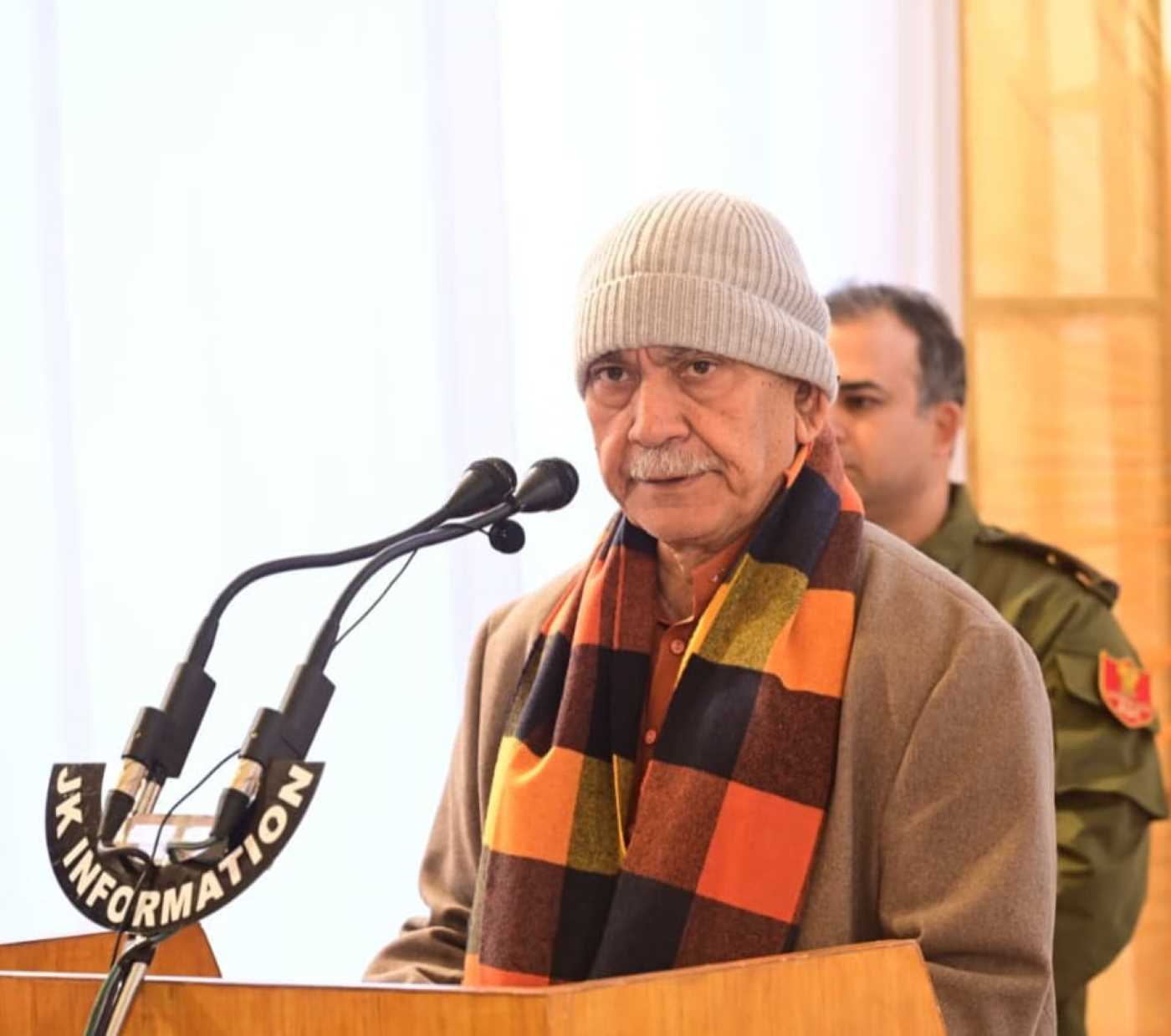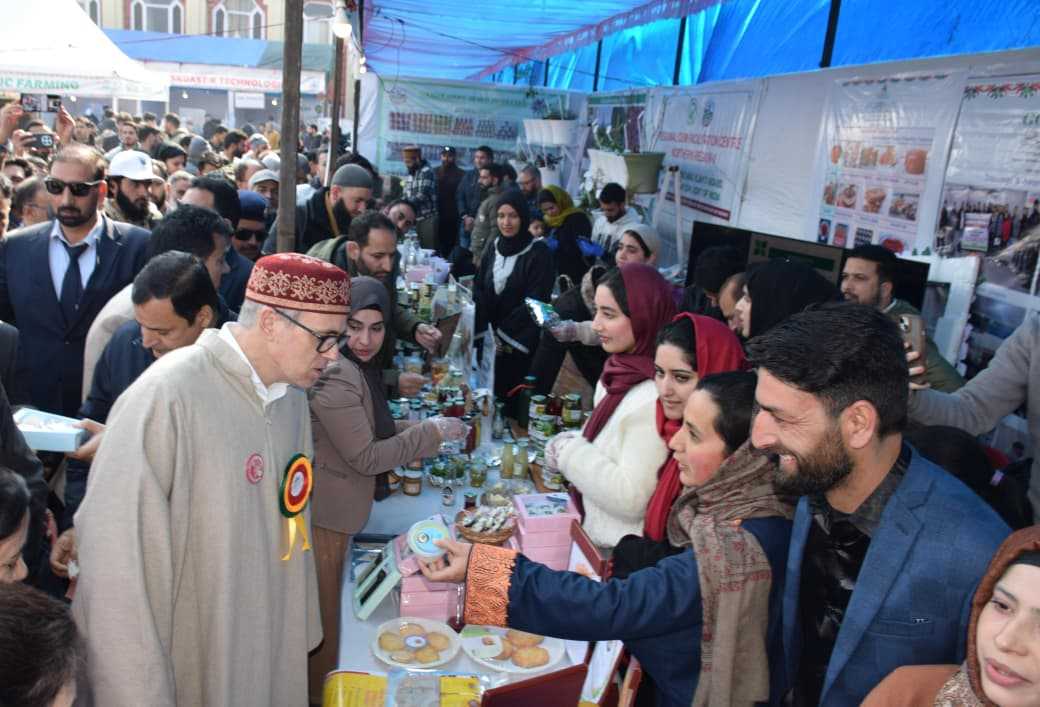
This person is Syed Adil Hussain Shah. In his early thirties, Shah was a pony owner who hailed from the village of Hapat Nar, about 20 Km from Pahalgam and earned his livelihood by taking terrorists to visit the Baisaran meadows from Pahalgam bus/taxi stop. On that fateful Tuesday, he was at the meadows with a tourist riding on his pony when the terrorists struck
It couldn’t have been more perverse. On Tuesday, tourists enjoying the scenic beauty of Pahalgam’s famous Baisaran meadows in Kashmir were accosted by terrorists armed with M4 carbines and AK rifles. After establishing their religious affiliation, the terrorists singled out non-Muslims and shot them dead at point blank range in front of their family members. In this horrific attack, while 28 people were killed, more than 20 were seriously injured.
Reminiscent of the Pakistan army’s repulsive practice of using circumcision as a means to identify and segregate Hindus during the 1971 military clampdown [Operation Searchlight] in erstwhile East Pakistan, Tuesday’s targeted killing of Hindus also comes hard on the heels of the Pakistan army chief Gen Syed Asim Munir’s questionable remark during his address at the Overseas Pakistani Convention in Islamabad that fundamental incompatibilities between Hindus and Muslims make co-existence of these two communities impossible.
Gen Munir had said, "Our forefathers believed that we were different from Hindus in every possible aspect of life. Our religion is different. Our customs are different. Our traditions are different. Our thoughts are different. Our ambitions are different... That was the foundation of the Two-Nation Theory. It was laid on the belief that we are two nations, not one." This utterance merits deliberation especially since the Pakistan army chief has invoked what he contends is the belief of Pakistan’s forefathers.
In her seminal piece [Pakistan’s Descent into Religious Intolerance], former Pakistani Parliamentarian Farahnaz Isaphani mentions that “When Pakistan was created in 1947, its secular founding fathers did not speak of an Islamic State. Muhammad Ali Jinnah declared that non-Muslims would be equal citizens in the new country. Reflecting his secular views, Jinnah – himself a Shia – tried to establish a multi-confessional state, and he nominated a Hindu, several Shias and an Ahmadi to Pakistan’s first cabinet.”
If a Hindu’s “thought” is different from that of a Muslim, why was he included by the Qaid-e-Azam in Pakistan’s first cabinet? And in any case, isn’t every religion, its customs, traditions as well as thoughts different from each other? So, while Pakistan was created to accommodate the Two-Nation theory, Gen Munir’s attempt of extending this ill-considered compromise package given by the departing British with utter disregard to historical realities for justifying irreconcilable religious incompatibility between Hindus and Muslims is indeed laughable.
Gen Munir apologists may contend that the timing of his rabid anti-Hindu rant and the Pahalagam terrorist attack targeting people belonging to this community is a mere coincidence. However, the fact of the matter is that for someone who is heading the army of a country that has a Hindu population [albeit only a miniscule percentage] as well as a sprinkling of this community in its rank and file to exhibit such religious intolerance is unbecoming of one in the honourable profession of arms and fuels religious radicalism.
The moot point is- where was the need for Gen Munir jumping-in to defend the Two Nation theory? Wasn’t his recent clarion call invoking the spirit of “Pakistaniat” [the unique national identity of Pakistan encompassing shared cultural heritage, values and a sense of belonging] good enough to galvanise public solidarity with the army? However, given his own tottering image and plummeting public popularity of the Pakistan army, Gen Munir’s desperate attempt to arouse anti-India sentiments and invoke religion in a bid to salvage the situation is understandable.
From the visuals released by the Pakistan army’s media wing Inter Services Public Relations [ISPR], it appears that the well educated audience of overseas Pakistanis appreciated Gen Munir’s Kashmir being Pakistan’s “jugular vein” chant and seemed to agree with his view that Hindus and Muslims couldn’t co-exist. While Gen Munir may be congratulating himself on the positive response to his speech, unknown to him, a humble Kashmiri has blown his fanciful narration apart.
This person is Syed Adil Hussain Shah. In his early thirties, Shah was a pony owner who hailed from the village of Hapat Nar, about 20 Km from Pahalgam and earned his livelihood by taking terrorists to visit the Baisaran meadows from Pahalgam bus/taxi stop. On that fateful Tuesday, he was at the meadows with a tourist riding on his pony when the terrorists struck. Faced with an armed terrorist baying for the blood of Hindus, being a Muslim and a local, Shah knew that he was under no threat of bodily harm as long as he didn’t annoy the killers.
However, when Shah saw the tourist who had hired him being singled out for extinction by a terrorist, he decided to intervene. He first reasoned and then even argued with the terrorist but when the killer refused to spare the tourist, instead of letting things happen, Shah tried to snatch the terrorist’s rifle in an attempt to save his pony’s hirer. Being unarmed Shah was unfortunately no match for the weapon wielding blood thirsty terrorist who pumped several bullets into the pony owner’s body killing him on the spot.
Shah was a devout Muslim while the tourist who had hired his pony was a Hindu. If Gen Munir’s claim of irreconcilable differences between Hindus and Muslims is indeed true, then Shah should have turned a blind eye and kept aloof as the terrorist proceeded to summarily dispatch the tourist. After all, the tourist had hired a pony and not requisitioned Shah’s services as a bodyguard; so why did this Kashmiri youth choose certain death for the sake of an unknown person?
Would Gen Munir please like to explain?
Since this question will remain unanswered, let’s analyse Shah’s motivation for laying down his life. Unlike Gen Munir, Shah may not have had extensive knowledge of Quranic teachings but he certainly knew what Islam is all about. And perhaps it’s the “Whoever kills an innocent person it is as if he has killed all of humanity,” and “standing firm in justice” holy edicts that made him embrace death like a true Muslim.
Lastly, though Allama Muhammad Iqbal propagated the idea of a separate Muslim state, one of his famous lines is “mazhab nahin sikhata aapas mein bair rakhna” [religion doesn’t teach us to hate each other]. So, when Iqbal [who is hailed as the ‘Spiritual Father of Pakistan’] has this to say about inter-faith amity, aren’t Gen Munir’s attempts to incite Hindu-Muslim animosity by citing differences of religions pathetic?
Email:--------------------------nileshkunwar.56@gmail.com




This person is Syed Adil Hussain Shah. In his early thirties, Shah was a pony owner who hailed from the village of Hapat Nar, about 20 Km from Pahalgam and earned his livelihood by taking terrorists to visit the Baisaran meadows from Pahalgam bus/taxi stop. On that fateful Tuesday, he was at the meadows with a tourist riding on his pony when the terrorists struck
It couldn’t have been more perverse. On Tuesday, tourists enjoying the scenic beauty of Pahalgam’s famous Baisaran meadows in Kashmir were accosted by terrorists armed with M4 carbines and AK rifles. After establishing their religious affiliation, the terrorists singled out non-Muslims and shot them dead at point blank range in front of their family members. In this horrific attack, while 28 people were killed, more than 20 were seriously injured.
Reminiscent of the Pakistan army’s repulsive practice of using circumcision as a means to identify and segregate Hindus during the 1971 military clampdown [Operation Searchlight] in erstwhile East Pakistan, Tuesday’s targeted killing of Hindus also comes hard on the heels of the Pakistan army chief Gen Syed Asim Munir’s questionable remark during his address at the Overseas Pakistani Convention in Islamabad that fundamental incompatibilities between Hindus and Muslims make co-existence of these two communities impossible.
Gen Munir had said, "Our forefathers believed that we were different from Hindus in every possible aspect of life. Our religion is different. Our customs are different. Our traditions are different. Our thoughts are different. Our ambitions are different... That was the foundation of the Two-Nation Theory. It was laid on the belief that we are two nations, not one." This utterance merits deliberation especially since the Pakistan army chief has invoked what he contends is the belief of Pakistan’s forefathers.
In her seminal piece [Pakistan’s Descent into Religious Intolerance], former Pakistani Parliamentarian Farahnaz Isaphani mentions that “When Pakistan was created in 1947, its secular founding fathers did not speak of an Islamic State. Muhammad Ali Jinnah declared that non-Muslims would be equal citizens in the new country. Reflecting his secular views, Jinnah – himself a Shia – tried to establish a multi-confessional state, and he nominated a Hindu, several Shias and an Ahmadi to Pakistan’s first cabinet.”
If a Hindu’s “thought” is different from that of a Muslim, why was he included by the Qaid-e-Azam in Pakistan’s first cabinet? And in any case, isn’t every religion, its customs, traditions as well as thoughts different from each other? So, while Pakistan was created to accommodate the Two-Nation theory, Gen Munir’s attempt of extending this ill-considered compromise package given by the departing British with utter disregard to historical realities for justifying irreconcilable religious incompatibility between Hindus and Muslims is indeed laughable.
Gen Munir apologists may contend that the timing of his rabid anti-Hindu rant and the Pahalagam terrorist attack targeting people belonging to this community is a mere coincidence. However, the fact of the matter is that for someone who is heading the army of a country that has a Hindu population [albeit only a miniscule percentage] as well as a sprinkling of this community in its rank and file to exhibit such religious intolerance is unbecoming of one in the honourable profession of arms and fuels religious radicalism.
The moot point is- where was the need for Gen Munir jumping-in to defend the Two Nation theory? Wasn’t his recent clarion call invoking the spirit of “Pakistaniat” [the unique national identity of Pakistan encompassing shared cultural heritage, values and a sense of belonging] good enough to galvanise public solidarity with the army? However, given his own tottering image and plummeting public popularity of the Pakistan army, Gen Munir’s desperate attempt to arouse anti-India sentiments and invoke religion in a bid to salvage the situation is understandable.
From the visuals released by the Pakistan army’s media wing Inter Services Public Relations [ISPR], it appears that the well educated audience of overseas Pakistanis appreciated Gen Munir’s Kashmir being Pakistan’s “jugular vein” chant and seemed to agree with his view that Hindus and Muslims couldn’t co-exist. While Gen Munir may be congratulating himself on the positive response to his speech, unknown to him, a humble Kashmiri has blown his fanciful narration apart.
This person is Syed Adil Hussain Shah. In his early thirties, Shah was a pony owner who hailed from the village of Hapat Nar, about 20 Km from Pahalgam and earned his livelihood by taking terrorists to visit the Baisaran meadows from Pahalgam bus/taxi stop. On that fateful Tuesday, he was at the meadows with a tourist riding on his pony when the terrorists struck. Faced with an armed terrorist baying for the blood of Hindus, being a Muslim and a local, Shah knew that he was under no threat of bodily harm as long as he didn’t annoy the killers.
However, when Shah saw the tourist who had hired him being singled out for extinction by a terrorist, he decided to intervene. He first reasoned and then even argued with the terrorist but when the killer refused to spare the tourist, instead of letting things happen, Shah tried to snatch the terrorist’s rifle in an attempt to save his pony’s hirer. Being unarmed Shah was unfortunately no match for the weapon wielding blood thirsty terrorist who pumped several bullets into the pony owner’s body killing him on the spot.
Shah was a devout Muslim while the tourist who had hired his pony was a Hindu. If Gen Munir’s claim of irreconcilable differences between Hindus and Muslims is indeed true, then Shah should have turned a blind eye and kept aloof as the terrorist proceeded to summarily dispatch the tourist. After all, the tourist had hired a pony and not requisitioned Shah’s services as a bodyguard; so why did this Kashmiri youth choose certain death for the sake of an unknown person?
Would Gen Munir please like to explain?
Since this question will remain unanswered, let’s analyse Shah’s motivation for laying down his life. Unlike Gen Munir, Shah may not have had extensive knowledge of Quranic teachings but he certainly knew what Islam is all about. And perhaps it’s the “Whoever kills an innocent person it is as if he has killed all of humanity,” and “standing firm in justice” holy edicts that made him embrace death like a true Muslim.
Lastly, though Allama Muhammad Iqbal propagated the idea of a separate Muslim state, one of his famous lines is “mazhab nahin sikhata aapas mein bair rakhna” [religion doesn’t teach us to hate each other]. So, when Iqbal [who is hailed as the ‘Spiritual Father of Pakistan’] has this to say about inter-faith amity, aren’t Gen Munir’s attempts to incite Hindu-Muslim animosity by citing differences of religions pathetic?
Email:--------------------------nileshkunwar.56@gmail.com
© Copyright 2023 brighterkashmir.com All Rights Reserved. Quantum Technologies